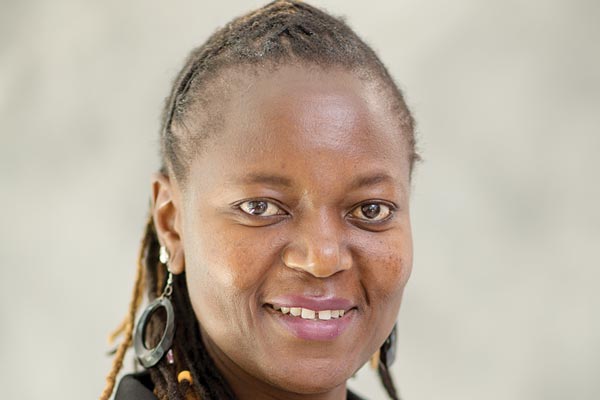
guest column :Miriam Tose Majome
SUPERSTITIOUS beliefs and practices have negative consequences and thus need to be curbed to avoid society breaking down into medieval mayhem, something which is quite easy to do as illustrated in the narrations. The kuchekeresa phenomenon, Zengeza Zombie and Sunningdale magic worm narrated in detail last week are just a few of the examples which show how detrimental superstitious beliefs can be if not regulated.
Witchcraft, witch finding and related crimes are contained in sections 97-102 in Part IV of the Criminal Law Codification and Reform Act which replaced the old Witchcraft Suppression Act. The law neither admits that witches and witchcraft exist nor does it deny their existence.
The law as far as possible tries to concern itself with things that can be proved with tangible evidence or on a balance of probabilities. It is important to note that claims and beliefs of supernatural occurrences are not evidence.
The law acknowledges that people indeed can engage in practices that are commonly associated with witchcraft like using charms or casting spells whether they work or not.
Engaging in practices normally associated with witchcraft is illegal and not the outcome thereof because that cannot be proved. No known empirical evidence has been adduced and scientifically verified that proves the veracity of claims of voodoo, mermaids, vampires etc.
The Randi Paranormal Challenge was a US$1 million dollar prize ran by former magician turned sceptic James Randi from 1964 to 2015. It challenged people to come forward to prove the veracity of their supernatural claims and psychic powers. In its 51-year history none of the more than 1 000 claims voluntarily submitted to the challenge was able to claim the prize.
Locally there is a glut of stories of paranormal occurrences like baboons which drive cross-border trucks, gorillas which talk and retrieve cheating spouses, money spitting snakes, etc.
- Chamisa under fire over US$120K donation
- Mavhunga puts DeMbare into Chibuku quarterfinals
- Pension funds bet on Cabora Bassa oilfields
- Councils defy govt fire tender directive
Keep Reading
The stories are funny and would be funnier if it wasn’t for that many people sincerely believe them and take them very seriously. It does not matter how educated or intelligent these people are.
There is just a deep need to believe in the supernatural. Michael Shermer in his book Why Intelligent People Believe Weird Things explains that superstitious intelligent educated people are actually better and more sophisticated at rationalising superstitious beliefs so they hold them even more strongly because they believe there is good reason to.
It is not an exaggerated assertion that the majority of black Zimbabweans are superstitious and hold dearly to those beliefs even without sensible reason. Something just must be out there to explain the phenomenon they cannot understand.
Attempts to challenge and dismiss those beliefs using logic are oftentimes deemed offensive. On why mermaids or “goblins” have never been photographed the answer is that things in the spiritual world are invisible to camera technology yet are strangely visible to the human eye. Traditional English folklore is replete with fictional tales of witches, wizards, vampires, goblins etc. Goblins are the fictional chubby short legged bad guys of English folklore. They have a wicked menacing side and scare little children learning to read. In Zimbabwe goblins are perceived as real life creatures with real evil intent and engage in harmful practices. Zimbabwean goblins scare the life out of grown-up people.
Despite so many of them believed to be crawling around the country and so many camera phones to date, no-one has ever shot even a grainy photo. The strange objects found here and there always look curiously hand-made and contrived to look scary.
Superstitious practices and beliefs are no laughing matter as they have serious tangible consequences. Death, injury, family conflicts and rifts arise from accusations and reprisals. Witch-hunting usually done by tsikamutandas that prey on the gullible is illegal.
People should be educated on the importance of steering away from unproductive supernatural beliefs and associated practices. A superstition only breeds under-development. Unfortunately Zimbabwean society is rapidly becoming increasingly superstitious concurrently with the increase of dubious unregulated religious sects.
The witchcraft phenomenon is not unique to Zimbabwe or Africa. It is a universal phenomenon. The only difference is the extent of the seriousness with which it is taken. Beliefs in witchcraft were deep rooted in medieval Europe. Ritual killings, witch-hunting and burning witches was the order of the day but eased with regulation and enlightenment.
The United States also had its troubles. The Salem Witch Trials took place in Massachusetts in the 17th century. Most of the accused people were vulnerable women of course.
They were blamed for causing disease and illness in society — pretty much like happens in our own society and other undeveloped societies which do not fully comprehend the germ theory of disease.
Once a person is accused of being a witch there is no way out of a brutal execution because nothing can be proved or disproved.
The accusation itself is the proof. Anything can lead to a witchcraft accusation — good looks, bad looks, poverty, wealth — anything at all. Attempting to defend an accused person can itself lead to an accusation.
The madness of the Salem witch trials and senseless executions only stopped when the senselessness became evident and the realisation that supernatural claims need to be curbed and regulated by the law to stop society breaking down into mayhem.











